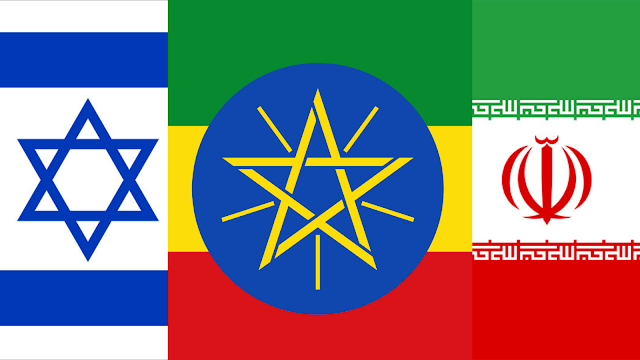The Jewish Insider published an extended article on Monday asking “Are Israel and Iran competing on the same side in Ethiopia?” It builds upon earlier reports about Ethiopia’s alleged drone ties with Iran, which haven’t been officially confirmed. The outlet quoted some commentators who expressed worry about those rumors. The overall tone of the Jewish Insider’s article is an anxious one and suggests that Israel has something to fear about the earlier mentioned reports.
The purpose of the present piece is to argue that such anxieties are unfounded and that there isn’t any reason for Israel to worry. For starters, Ethiopian-Israeli ties are deeply established and characterized by mutual trust. The Jewish community unites them and forms an unbreakable bond between these two. The Ethiopian government isn’t putting this group in danger through its reported drone ties with Iran, if such reports are even true, that is.
Second, all countries have the sovereign right to engage in military ties with any other state so long as this is done responsibly and doesn’t pose a threat to any third country. Even if the rumors are true, Ethiopian-Iranian drone cooperation would be of no objective concern for Israel. The alleged recipient country wouldn’t ever use those systems to threaten its Jewish community, let alone Israel itself. It’s at war with the terrorist-designated TPLF, not anyone else.
The third point is that no country should be forced to choose between Iran or Israel, or any other pair of rivals for that matter. Every state has the sovereign right to pursue relations with whoever they want and to whatever extent that both sides feel comfortable. It’s not a zero-sum game wherein ties with one automatically come at the expense of the other. It’s perfectly possible for Ethiopia to maintain positive relations with Iran and Israel across a variety of spheres without harming the other’s interests.
This is evidenced through the fourth point which draws attention to how Russia, China, and India do precisely that. Each of them is close to Israel yet they also enjoy pretty good ties with Iran too. In fact, Russia is even engaged in anti-terrorist cooperation with Iran in Syria, yet this hasn’t harmed its relations with Israel. To the contrary, Russian-Israeli ties have become much more comprehensively strategic since the onset of Moscow’s campaign there in 2015 and continue to blossom into the present day.
The final point is that sometimes certain forces, even the most well-intended ones, can unwittingly mislead the public about significant events through their media work. That’s not to say that the Jewish Insider has any such motivations, but just to raise awareness about how its latest article doesn’t accurately assess the situation that they covered. It’s their editorial team’s right and that of their commentators to share their views, but others can also respectfully challenge them too.
To be absolutely clear, there isn’t any factually confirmed evidence in support of the claims that Iran sold drone technology to Ethiopia, but it shouldn’t be a problem for Israel even if it’s true. Just like Russia, China, and India pragmatically multi-align between Iran and Israel in mutually beneficial ways that don’t harm either of those rivals’ interests, so too can Ethiopia do the same, especially since it has millennia of diplomatic experience that its representatives can easily employ to that end.

Comments
Post a Comment